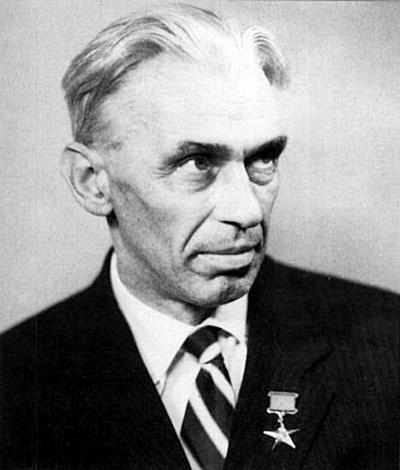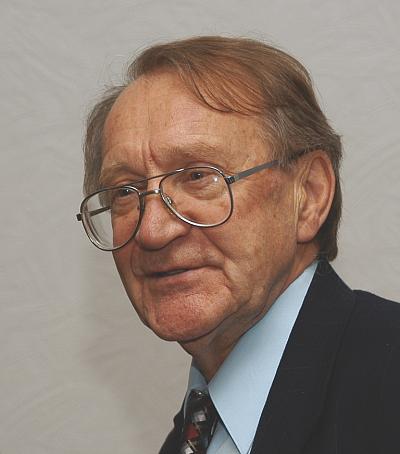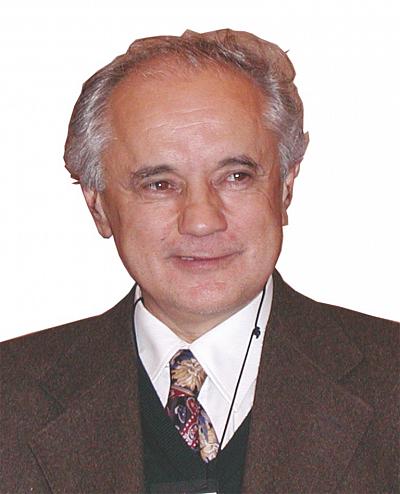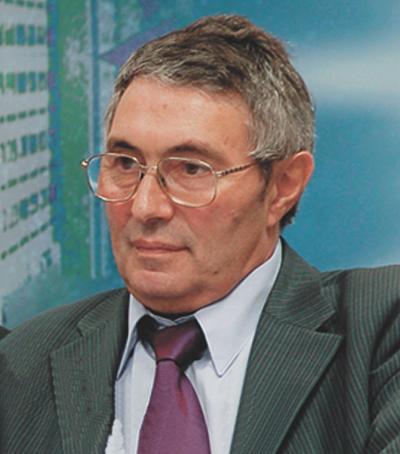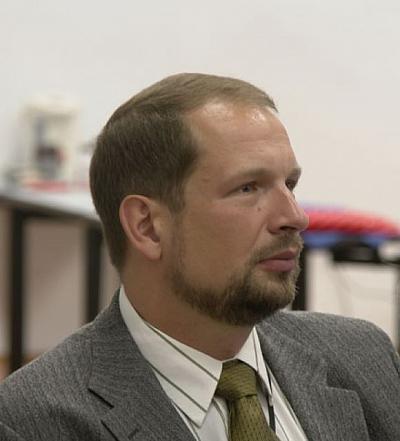Directors of Space Research Institute
Over the years IKI was headed by Academician G. I. Petrov (1965–1973), Academician R. Z. Sagdeev (1973–1988), Academician A. A. Galeev (1988–2002), academician L. M. Zelenyi (2002–2018), corresponding member of the Russian Academy of Sciences A. A. Petrukovich (2018—present).
Georgy I. Petrov. 1965–1973
The first director of the Institute, physicist with specialization in mechanics, whose name is closely connected to many outstanding achievements of national rocket technology in the second part of the XX century.
Elected corresponding member of the Academy of Sciences in 1953, and full member (upon submission by M. V. Keldysh and S. P. Korolev) in 1958.
An extraordinary scientist, Georgy I. Petrov posessed both wide and deep insight of the physical phenomena, which allowed him to grasp their essence and to build an adequate mathematical model to describe them. A theoretician as much as an experimenter, he was among the first to justify the potential of high-speed computers for mechanics and made a large contribution to aeromechanics of high speeds and thermal insulation of space-craft, entering the atmosphere with supersonic velocities close to orbital velocity.
He passed on May 13, 1987 in the age of 74.
Roald Z. Sagdeev. 1973–1988
Doctor of Sciences, Professor. Elected corresponding member of the Academy of Sciences in 1964, and full member in 1968. He worked at Kurchatov Institute and Institute of Nuclear Physics (Siberian Branch of the RAS), where he became one of the founders of the modern plasma physics. In 1973–1988 R. Z. Sagdeev was a director of IKI. Later, he headed analytic research department of the Institute.
He authors numerous works on plasma (shock waves, transfer processes, instabilities) and space physics. Among the most renown is his theory of collisionless shock waves, which is one of the keystones of modern space physics, thermonuclear fusion, and many other fields. He was awarded with Lenin prize for development of neoclassical theory of transfer processes in thoroidal plasma. R. Z. Sagdeev founded a school in physics, which counts tens of PhD's and is acknowledged worldwide.
Foreign member of the U.S. National Academy of Sciences and Royal Swedish Academy of Sciences.
Albert A. Galeev. 1988–2002
Doctor of Sciences, Professor. Elected corresponding member of the Academy of Sciences in 1987, and full member in 1992. Specialized in plasma physics. He graduated from Novosibirsk State University; while studying, he also worked at Institute of Nuclear Physics (Siberian Branch of the RAS).
In 1973 he started working at IKI, where he headed Space Plasma Department. Director of the Institute since 1988.
His bright talent and energy were the keys to his unique results in space physics. He elaborated a theory of explosive reconnection of force lines in the tail of the magnetosphere, the theory of weak wave interactions in plasma, and, together with Sagdeev, neoclassical theory of transfer in tokamaks. He suggested a theory, explaining solar wind accelaration from coronal holes by Alfven waves.
He was awarded with Lenin Prize, Prize of Lenin Komsomol, Prize of the President of the Russian Federation, several international awards.
After leaving the post of director in 2002, A. A. Galeev was Director Emeritus of IKI. In September 2022, Albert Abubakirovaich passed away. He was almost 82 years old.
Lev M. Zelenyi. 2002–2018
Doctor of Sciences, Professor. Elected corresponding member of the Academy of Sciences in 2003, and full member in 2008.
Vice president of the Russian Academy of Sciences in 2013–2018 and the chairman of the Space Council of the RAS (now deputy chairman).
In 1972 he graduated from the Moscow Institute of Physics and Technology (Department of Aerophysics and Space Research) and began working at IKI, first as an engineer and junior researcher.
Main area of research — space plasma physics. Professor Zelenyi is a well-known expert in the theory of collisionless plasma, magnetic fields reconnection, charged particle dynamics, magnetosphere physics. Principal Investigator of one of the most successful international space missions Interball. Today — Principal Investigator from the Russian side of the ExoMars international project and national lunar program.
Laureate of the Prize of the President of the Russian Federation in the field of education in 2003. In 2008, Lev Zelenyi was awarded the badge of the Federal Space Agency “For International Cooperation in the Field of Cosmonautics“. In 2010, he was given a Basic Science Award of the International Academy of Astronautics for his outstanding contribution to plasma physics and research of the planets of the Solar System. And in May 2016, by the decision of COSPAR Bureau, L. M. Zelenyi was awarded one of the most prestigious awards of COSPAR – International Cooperation Medal. In 2019, he was awarded Lev Nikolaev Gold Medal for his outstanding contribution to enlightenment, education, and culture. In 2020, he became one of the 30 leading Russian scientists in the project Physically Possible, by SkolTech and Ogonyok magazine. Laureate of the Ginzburg Gold Medal of the Russian Academy of Sciences for outstanding achievements in the field of physics and astrophysics in 2021.
From 1992 to 2007, L. M. Zelenyi was a member of the editorial board of the Journal of Geophysical Research – Space Physics, published in the USA. For many years he was a member of the editorial board of the international journals Space Science Reviews and Nonlinear Processes in Geophysics. Currently, L. M. Zelenyi is editor-in-chief of the Earth&Universe and a member of the editorial board of the Priroda popular scientific magazines, published by the Presidium of the Russian Academy of Sciences and Nauka publishing house.
Anatoliy A. Petrukovich. 2018 – present
Leading Russian scientist in the field of space plasma physics, heliophysics and geophysics. Since 1990 he has been working at IKI, director of IKI since 2018. In 1994 he defended his PhD thesis in the field of heliophysics and physics of the Solar system. In 2003 he defended his dissertation for the degree of Doctor of Sciences (Physics and Mathematics) in the field of solar physics. Elected corresponding member of the Academy of Sciences in 2011, and full member in 2025.
A. A. Petrukovich has more than 200 publications in peer-reviewed national and foreign publications (h-index WoS 32). He was the editor of the collective monograph Modern achievements in plasma heliogeophysics (2018). He is the Head of the Chair for Space Physics at the National Research University Higher School of Economics, professor of the Chair for Space Physics of the Moscow Institute of Physics and Technology (National Research University).
Working on his thesis and, later, his PhD thesis, A. A. Petrukovich solved a number of problems important for an adequate description of whistling waves responsible for energy dissipation on shock waves in space plasma.
Since 1995, A. A. Petrukovich focused on the work on the Russian Interball space project and studies of the magnetosphere dynamics. One of the main problems of space plasma physics has been solved – the quantitative identification of the global instability of the magnetosphere tail-type structure. These results were one of the most famous achievements of this Russian project.
In recent years, together with a team of experimenters and theorists, he has been actively working on a number of universal problems of collisionless space plasma physics related to the interaction of waves and particles on shock waves and fast plasma flows. The most important results were obtained in the field of applied heliogeophysics, they made it possible to refine the forecasts of geomagnetic activity significantly using observations of the interplanetary medium.
A. A. Petrukovich is the head of several space projects of the Federal Space Program of Russia, the head of a number of sections in the specialized councils of the Russian Academy of Sciences. As the director of the Institute, he takes an active part in the formation of the Russian space research program.
Since 2019, he is editor-in-chief of the Space Research journal of the Presidium of the Russian Academy of Sciences. Laureate of the Zeldovich Medal of the Russian Academy of Sciences and COSPAR for young scientists for excellence and achievements (2002).

